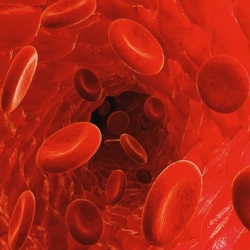
11 patients were injected with stem cells during bypass surgery. Stem cells injected into their hearts caused a 40% reduction in the size of scarred tissue. Such scarring occurs during a heart attack, and can increase the chances of further heart failure.
The scarring was previously thought to be permanent and irreversible. At the time of treatment, the patients were suffering heart failure and had a very high (70%) annual mortality rate. But 36 months after receiving the stem cell treatment all are still alive, and none have suffered a further cardiac event such as a heart attack or stroke, or had any readmissions for cardiac-related reasons.
Twenty-four months after participants were injected with the stem cell treatment there was a 30% improvement in heart function, 40% reduction in scar size, and 70% improvement in quality of life, as judged by the Minnesota living with heart failure (MLHF) score.
Journal of Cardiovascular Translational Research – Implantation of a Novel Allogeneic Mesenchymal Precursor Cell Type in Patients with Ischemic Cardiomyopathy Undergoing Coronary Artery Bypass Grafting: an Open Label Phase IIa Trial
Heart failure is a life-limiting condition affecting over 40 million patients worldwide. Ischemic cardiomyopathy (ICM) is the most common cause. This study investigates in situ cardiac regeneration utilizing precision delivery of a novel mesenchymal precursor cell type (iMP) during coronary artery bypass surgery (CABG) in patients with ischemic cardiomyopathy (LVEF less than 40 %). The phase IIa safety study was designed to enroll 11 patients.
Preoperative scintigraphy imaging (SPECT) was used to identify hibernating myocardium not suitable for conventional myocardial revascularization for iMP implantation. iMP cells were implanted intramyocardially in predefined viable peri-infarct areas that showed poor perfusion, which could not be grafted due to poor target vessel quality. Postoperatively, SPECT was then used to identify changes in scar area.
Intramyocardial implantation of iMP cells with CABG was safe with preliminary evidence of efficacy of improved myocardial contractility and perfusion of nonrevascularized territories resulting in a significant reduction in left ventricular scar area at 12 months after treatment.
Clinical improvement was associated with a significant improvement in quality of life at 6 months posttreatment in all patients. The results suggest the potential for in situ myocardial regeneration in ischemic heart failure by delivery of iMP cells.
